Former EU Commissioner John Dalli has been advising against people doing business in Libya as he could sense a civil war brewing.
Back in 2011, Mr Dalli had made certain statements which resulted in him being portrayed as pro Gaddafi in both the national and international press. Regardless of the critizise in the media for the statements he had made, Mr Dalli believes that what he said at the time was indeed, correct.
The former PN Minister told this newsroom that he used to cry when hearing that the previous government wrapped up the Libyan situation to an evacuation, arguing that Malta should have played a larger role. He said that the situation in Libya was and is very complex, adding that various factions, one possibly led by Al Qaeda, are vying for power.
This newsroom also challenged Mr Dalli with questions regarding Malta’s economic ties with its southern neighbour, to which he said that Libya holds prospect for future investment by the Maltese, following the solution of the current situation in Libya and a return to some form of stability.
He admits that Prime Minister Joseph Muscat and his Government did not seek his advise on the current Libyan situation or during the abduction of Martin Galea. “If I had been asked to, I would have tried to pick up some contacts that could have helped but I was not asked and therefore I did not interfere in any way,” said Mr. Dalli.
Interview in full
“The situation in Libya is beyond control”
Former Foreign Affairs Minister and EU Commissioner John Dalli told The Malta Independentthat when he is asked to consult on Libya, he tells them “hands off”.
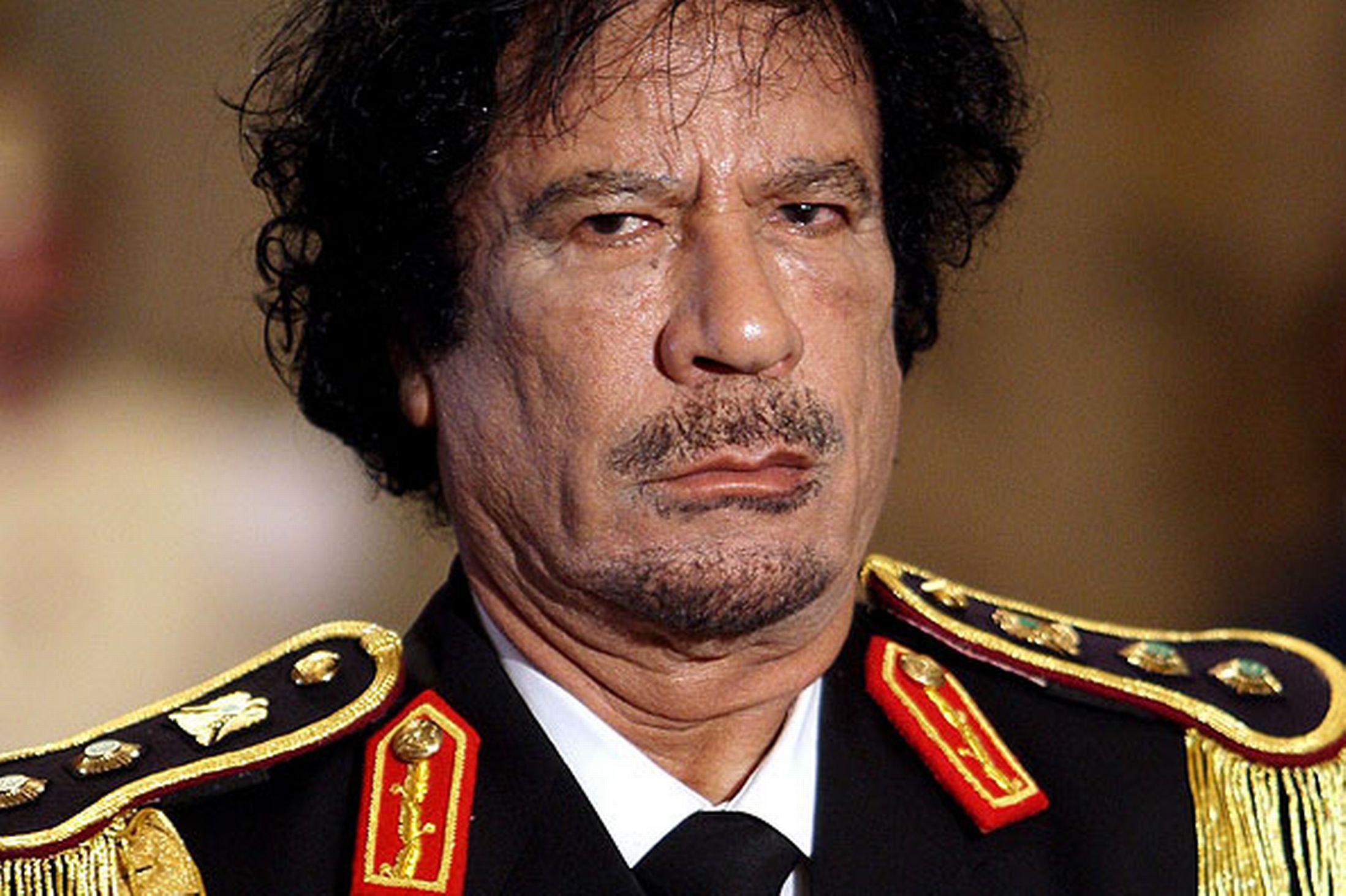
Back in 2011, during the Libyan turmoil surrounding the deposing of dictator Muammar Gaddafi, John Dalli, as EU Commissioner for Health and Consumer Policy, had made certain statements which resulted in him being portrayed as pro-Gaddafi.
When asked whether Mr Dalli ever held any business interest in Libya, Mr Dalli said that whilst in government, he never held any direct business in Libya. However following the controversy which saw him going back to the backbench in 2004, he set up a consultancy and had some consultancy business in Libya. “So these stories regarding me having some big construction project and others like it in Libya are all lies”.
“This last year and a half I have been telling people who seek advice whether they should do business in Libya, contrary to other people’s advice, to keep away as I could sense a civil war brewing”.
He could not mention any of the companies or people he has advised with regards to Libya, however did say that they were not government institutions.
Decisions made, a course of action taken
Questioned by this newsroom, John Dalli gave his views on the Libyan situation in 2011 and the repercussions that followed.

John Dalli believes that in 2011, a decision was made and a course of action was taken. “What I believe, unfortunately, is that the real momentum of what was triggered in 2011 was not appreciated or understood at the time and this is what lead to the chaos present in the situation today”. The actions taken at the time were such that although a strategy had begun to be formed, no real exit strategy had been thought about, let alone agreed upon, he added.
The reality in Libya is different from other realities and has its own “kudos”, Mr Dalli added.”It is a multi-tribal society with different interests, both cultural and economic. Once the gel of the tribal cohesion that existed at the time was dissolved, for better or for worse, then the free float of all interests by various tribes could only result in chaos”.
Mr Dalli emphasised that what is being seen now is the result of, what he believes, is a lack of consideration in the actions taken in 2011.
Asked about the possible threat to Europe, Mr Dalli said; “One can see an upsurge in radical Islam. This is not a religious issue but a political one”. Mr Dalli argued that when speaking of radical Islam, he is not referring to the belief, but rather the cultural and political values associated with it. “These values have been allowed to enter Libya from many different countries, developing a base for their activity in Libya and North Africa”.
He added that one would see that Europe is their target and “this is what we must be weary of. In relation to what we have today, the Mediterranean was far more stable prior to 2011, regardless of Gaddafi’s theatrics at the time. Through the power structures forming in North Africa, not just in Libya but also in Tunisia and also Egypt, I believe that Malta’s security is being severely threatened”.
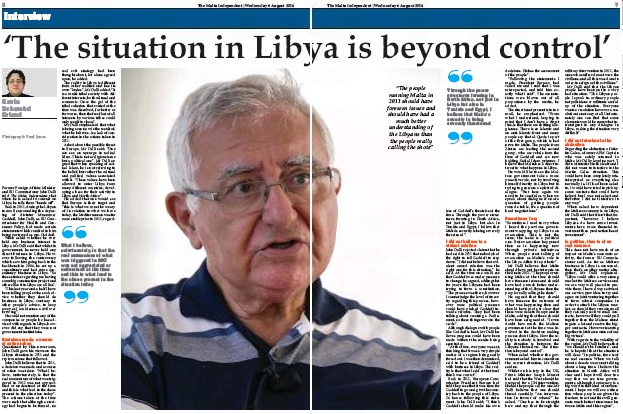
I did not believe in a violent solution
John Dalli rejected claims that he had said in 2011 that nobody had the right to tell Gaddafi to step down. “I did not believe that a violent armed solution was the right one for this situation,” he said. At the time one could see that Gaddafi was under pressure to change, he argued, adding that for years the Libyans had been trying to form a constitution. “The process was there, however I cannot judge the level of sincerity regarding this process, however more political pressure could have pushed Gaddafi towards reforms. They had been talking about creating a Parliament, so these things were in the cards”.
Although dialogue with people like Gaddafi is hard, Mr Dalli believes progress could have been made without the results being seen today.
“At the time, everyone was set, thinking that it was a very simple matter of a regime being easily forced out. I was then demonised, said to be a friend of Gaddafi with business in Libya. The reality is that what I said at the time I think was correct”.
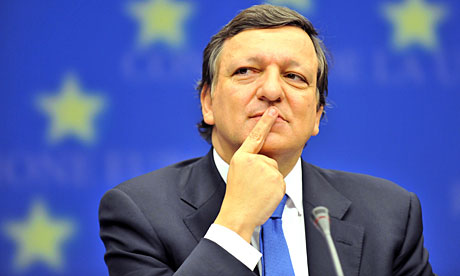
Back in 2011, European Commission President Barroso had told the press that it was time for Gaddafi to go and give the country back to the people of Libya. 24 hours following this statement, John Dalli said; “I think Gaddafi should make his own decisions. He has the assessment of the people”.
“Following the statements I made, President Barroso had called me and I said that I was misreported, and told him exactly what I said”. The connotations were blown out of all proportions by the media, he added.
The situation at present is in turmoil, he emphasised. “From what I understand, keeping in mind that I don’t have a direct line, is that there are shifting allegiances. There is an Islamic and an anti-Islamic front and many people say that Al Qaeda is part of the first group, which is bad news for Malta. The people from Zintan are leading the second group, who are rebels from the time of Gaddafi and are now holding Saif al Islam prisoner. I believe that Malta has a direct interest in what happens in Libya.
He would like to see the Maltese government take a more proactive role, not by involving himself directly in Libya but in trying to generate a spirit of dialogue. “But here again we need to be careful as when we speak about dialogue it’s not a question of getting people round a table, it’s a question of hard negotiations”.
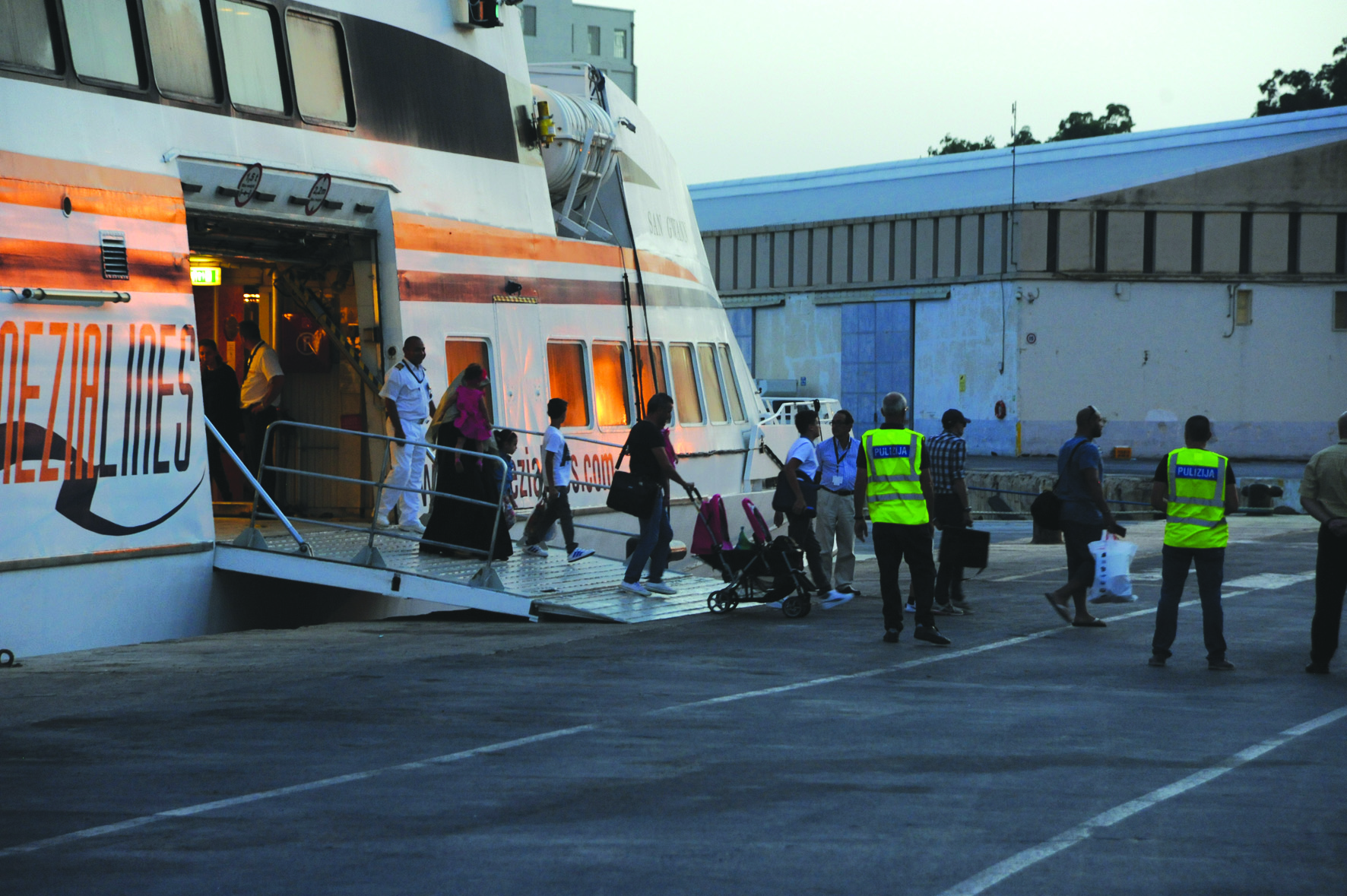
Sometimes I cry
“Sometimes I used to cry when I heard the previous government wrapping up Libya to an evacuation. This is not the issue, the issue is a political one. But evacuation happened then as is happening now through private initiatives. When people start talking of evacuation as Malta’s role in the Libya Affair it is pathetic”.
Mr Dalli believes that Malta should have put her interests on the line in 2011. “The people running Malta at the time should have foreseen issues and should have had a much better understanding of the Libyans than the people really calling the shots”.
He argued that they should have foreseen the outcome of what was happening then and should have made it clear that there were risks to Europe and to Malta, adding that these should have been safeguarded. “I even doubt how much the Maltese government at the time was involved in the decision making process about Libya. Now the reality is nobody is involved and the situation is between the Libyans themselves. The situation is beyond control”.
When asked whether the government asked him to consult on the current situation, Mr Dalli said no.
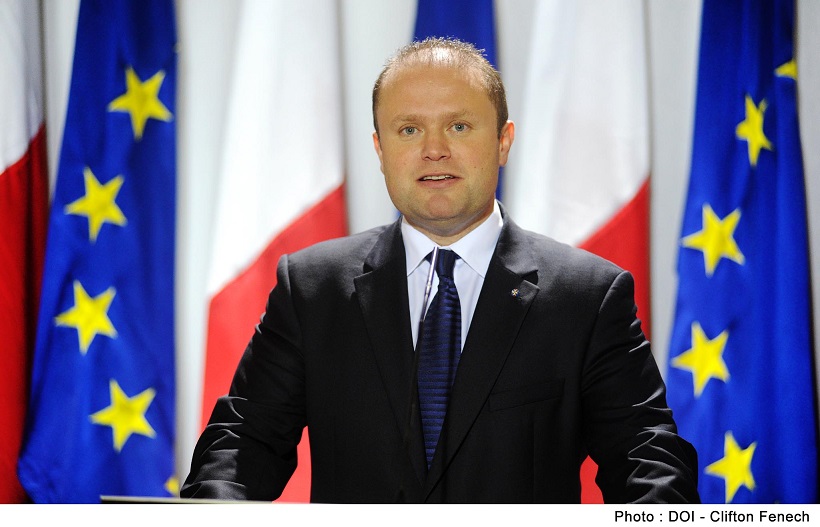
Whilst on his trip in the UK, Prime Minister Joseph Muscat had said that the West should be prepared for a UN intervention, should the people call for one. Mr Dalli believes that one should thread carefully. “An intervention In favour of whom?” he asked. “One has to be straight here and say that through the military intervention in 2011, the ones who suffered most were the civilians, and all this was done in order to safeguard the civilians”.
Mr Dalli said that the Libyan people have been put in a very bad situation. “The Libyan people I speak to, ordinary people not politicians or militants are fed up of the situation. Everyone wants a resolution however a resolution is not easy at all. Unfortunately one can find that some elements would be somewhat intransigent in any dialogue in Libya, making the situation very difficult”.

I did not interfere in the abduction
Regarding the abduction of Martin Galea, a former AFM Captain who was safely returned to Malta, Mr Dalli played no part. “I did not interfere in the least and I did not want to interfere in the Martin Galea situation. This could have been completely misinterpreted as everything else normally is. If I had been asked to, I would have tried to pick up some contacts that could have helped but I was not asked and therefore I did not interfere in any way”
When asked how dependent the Maltese economy is on Libya, Mr Dalli said that it isn’t that important, “however I believe Libyans do have some investments here, more financial investment than production based investment”.
In politics, time is of no real essence
This does not have much of an impact on Malta’s economic activity, the former EU Commissioner said. As far as Maltese business in Libya is concerned, then that’s another matter altogether, Mr Dalliexplained. “Libya could offer a very strong market for Maltese services and we are very well placed to provide them. I have always advised our service providers to try and agree on joint venturing together to form robust companies in order to attack the Libyan market, as should they remain small they can only receive small contracts, however If they could pull together then the Maltese stand to gain a lot and receive the bigger contracts. However teaming together in Malta is not one of our big virtues”.
With regards to the volatility of the region, Mr Dalli believes that “we shouldn’t be fatalists”, and he is hopeful that the situation will clear. “In politics, time is of no real essence. When we talk about a decade we are not talking about a long time. I believe the situation in North Africa will clear and I hope it will clear in a way that we see true governments, although democracy is a big word in that kind of environment. I hope we will see a situation where people are given the freedom to act and this will generate much better intercourse between Malta and this region”.